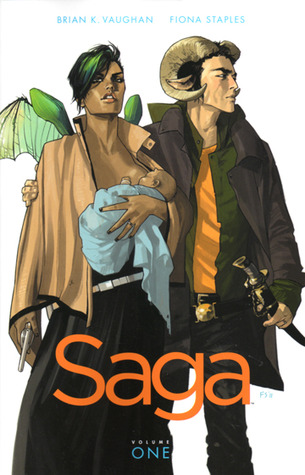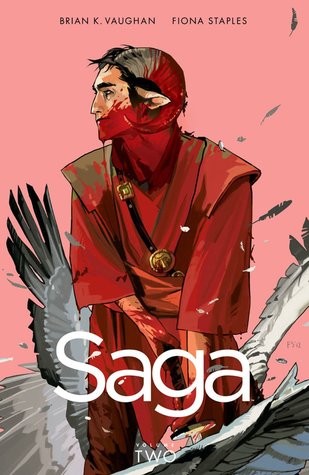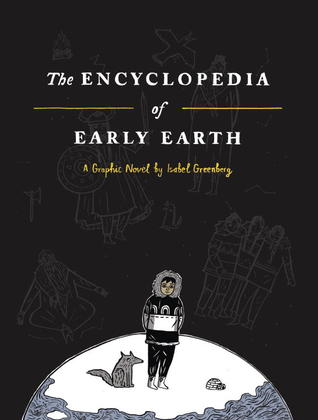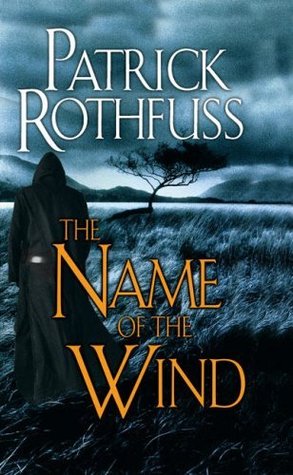At last, some of my coverage from Phoenix Comicon 2015 appears on the blog! It was great fun this year, with lots of amazing author panels and signings, and some time left over for people watching and exploring the dealer’s hall. I was super, super psyched to go to Ann Leckie’s spotlight panel, as I had recently started her Imperial Radch series. I hadn’t yet finished the first book, Ancillary Justice, at the time, but it was a calculated risk between going there and possibly perhaps maybe getting a little spoiled, and going there and learning all kinds of neat things about the books and her writing. In the end (as if there had ever been any question!), the chance to hear all the cool stuff she had to say won out. We were a fairly small group at the panel, which made it nice and cozy, and pretty much everyone who wanted to ask a question had a chance to do so (even me!). As usual, I did my best with transcription of the audio, and hope you enjoy this taste of what went down at the panel!
A random smattering of interesting topics, tidbits, and happenings during the panel:
- A story (that no one could state with certainty was true) that C.J. Cherryh’s publishers made her put an “h” on the end of her name because they thought no one would buy a sci-fi novel from a woman named Cherry
- Lots of interesting information about what a rodman does on a surveying crew, which was a previous job of Ms. Leckie’s
- The lesson that one should make sure they’re not holding a machete in the hand that they’re using to swat a horsefly that has landed on their body
- Discussion of Breq as an unreliable narrator when it comes to herself
- Jack Vance as a writer of gorgeous visual stuff—Ms. Leckie read a lot of Vance because she wanted to learn how to create good visuals in her work
- Historical smuggling of tea out of China
- Learning that it took her almost 10 years to write Ancillary Justice
And now for some of the questions she fielded during the panel that I found particularly interesting (and spoiler-free, for anyone who hasn’t read the books yet!).
Audience Member: Can you talk about the origins of the Ancillary series?
Ann Leckie: Basically, it was me putting shiny stuff together. I was one of those people who always wanted to be a writer from when I was quite young, but I never felt like any of my ideas were any good, or any of what I was doing was any good. Shortly after college I actually sold a story to True Confessions—which does not give you a byline, so that doesn’t count—not because I liked True Confessions—and this was an important lesson. I said, “Well, I want to write, but I don’t know what to write,” so I went to the drugstore and I got six dozen—the company had like 40 million different versions—there was True Love, and True Romance, and True Confessions, and True This and True That. I bought armfuls of these, and I read them until my eyes bled. And just whatever I flopped down on the paper was the story and I sent it in and they bought it. And I said, “Oh my gosh, I can actually do this. So, now write another one.” And I was like, “…no. It would not be worth it.” Even if they bought it. Because I really hated doing that. I hated reading them. I hated writing it. I’m never going to do that again. So then I didn’t write anything for a very long time.
Then in about 2002, I had smallish kids and I was home, because I had discovered very quickly after having kids that with the low paying jobs I was working—rodmen do not make a lot of money—I would be paying to go to work, what with childcare. So I was home, but I was just incredibly bored. I love my kids, they’re marvelous, and I would not trade them for anything. When they were one and a half they were not very intellectually stimulating. And so I said I need to do something. I’d heard about NaNoWriMo, and I said, “I’ll do NaNoWriMo, and I’ve got all these shiny things!” Because that’s what you do when you don’t have much else to think about—you put these shiny things together. So I sat down, and by then I already had the basic idea for Ancillary Justice, but I didn’t think I could write it because writing from the point of view of that particular character seemed impossible. I didn’t think I could do it. So, I wrote around the edges of that novel. I finished it and I said, “Well, this isn’t half bad. I’m going to revise it and send it out.” I sent it around to a number of different places, sent it around to some agents, and of course nobody took it. I am now eternally grateful that nobody bought it. Looking back on it now, it really wasn’t very good, which was another important lesson. I wrote a sequel to that novel just because next year’s NaNoWriMo came around. And then I said no, I’m going to do short fiction. So I did short fiction for 7, 8 years, I think. Then finally, I said okay, I’m going to sit down and I’m going to try and write the point of view from this particular character and just see what happens. What’s the worst that could happen? I waste the time and it goes in the drawer with the other two novels. That didn’t kill me. So that’s pretty much where that came from.
Audience Member: What was it like to win the Hugo?
Ann Leckie: Really surreal. Very strange. I strongly suspect that most science fiction and fantasy writers have a secret grandiose fantasy of winning the Hugo, and I suspect that most of us then say to ourselves, “Yeah, right. Now back to work.” Because, no. Lightning will strike first, right? So you always have that—you’re all alone, fantasizing being up on the stage giving a speech or whatever, and then you’re like, no. It’s not going to happen. So when it actually happened, I was lucky not to faint on the way up to the stage. I was pretty sure it wasn’t going to happen, in fact. I was pretty sure Wheel of Time was going to win. […] It still seems weird. But I can look at my mantle at home and there they are, so they must’ve really happened!
Audience Member: There was something in Ancillary Justice that I really enjoyed, and I was wondering if it was influenced by some of the Golden Age science fiction. In the beginning there’s a lot of mind wipe that was often used extensively within the Golden Age of science fiction to indicate that someone had their mind taken away, but they were still alive, still a person. I liked how in Ancillary Justice that you dealt with the overlay—what it does to what was there before, and the fact that even though physically they look the same, basically it’s a death of the personality.
Ann Leckie: Once I had the thought of the character with multiple bodies, then I said, “Well, what are the implications of that? What is there to play with there?” I started to look into the neurological basis of identity, which is really creepy when you read too much about it. If you have the right kind of brain damage, you will think you do not exist. If you have the right kind of brain damage, you can think you’re dead. Walking around—no, I’m dead, I’m not actually here. There was—I don’t remember her name, but she wrote a book, and she had what was probably a stroke. She died fairly young of a stroke, probably a series of strokes I suspect—where first she suddenly one day felt that she had been displaced out of her body and was following herself around. Eventually that came to a point where she believed she did not exist. She was like, “I know this body’s walking around, but there is no ‘me’ inside here. I’m talking to you, but there’s no ‘I.’” It was really distressing to her, and eventually she came to a settlement with herself about it by framing it as the sort of enlightenment of Buddhism, where the goal is to lose yourself. She felt more comfortable with the situation she was in after that.
That was really an interesting thing to read. It was pretty clear that she was having some neurological things and having to deal with them, and I’m like—you know, we kind of feel like “I’m me” is common sense, like I stop at my body and I am who I am. But it’s so fragile. It’s so subject to these tiny little physical changes that maybe we don’t have any control over. We don’t have any control over whether we’re going to have a stroke, or a particular kind of head injury.
The other one that I already sort of knew about, but read some more about was the two hemispheres of the brain. Most of the communication between them is handled by the corpus callosum between the two halves. In people who have really severe epilepsy, sometimes the only thing you can do to keep that from killing them is to actually sever that connection between the two hemispheres of the brain. Most of the time they do pretty well afterwards and it saves their lives. But if you do a thing where you put headphones on them and, say, goggles, and you show a picture to one eye and say something in the one ear, and then say, “Pick up whatever I’m showing you,” each hand will do a different thing, depending. And it’s very clear that the two halves of the brain aren’t communicating with each other and are responding to different things. It’s almost as though you’re talking to two different people. But if you talk to the person, they don’t experience themself as two different people. And so the more I looked into these things, the more kind of creepy it was, the idea that we know who we are, but do we really know who we are, or is that just a function of how our brains are working, and how fragile all of that is? So that was a lot of what I was thinking about when I was thinking, you know you kill that person—it’s actually very easy to do that, if you hit the right spot in somebody’s brain.
Audience Member: Can you talk about how you came up with the treatment of gender in the Radch? It felt very unique, something I hadn’t seen before.
Ann Leckie: That was something that, very naively, very early on, I said to myself, “I want to write a society that really does not care about gender. Genuinely does not.” And in that first novel that I wrote for NaNoWriMo I tried to do that. I assigned genders to people and I used the pronouns that seemed appropriate for those genders, and was really unhappy with the result because what I could see happening was that I was slotting people into particular kinds of roles based on gender. And I was like, “This is not really getting across the idea of not caring about gender.” There was a short story I wrote that thankfully has never sold, where I used “he” for everybody, and I was really unhappy with the result of that. And so I kind of began to poke around at ways to do that.
At this point I had not read The Left Hand of Darkness, which I probably should have read earlier in my science fiction career, but I did know that Le Guin had used “he” for everybody in that book, and that later on, years later, she had kind of regretted that. Although I suspect, as is often the case, in hindsight you think you could’ve made another choice, but I don’t doubt that she made what was the best choice possible at the time. That she genuinely felt at the time that that was the way to go. And so I said, what if I use “she?” I briefly considered using “they,” but when you’ve got characters who have thousands of bodies, using “they” introduces an ambiguity—normally, there’s nothing wrong with singular they, right? But we only have one body each and there’s no question about the plural thing. I also considered a number of the newer genderless pronouns, which are really cool and I really kind of hope that some of them get used more often because I think there is really a need for that. I felt like that was not going to work for the project, that it would be even more distancing than playing with the pronouns to begin with. Whether that was the best choice possible I don’t know. I made the choice that seemed most appropriate to me. So I said, well, what if I just use “she,” and what if I treat it like it’s being translated out of this language with no gendered pronouns? The confusing thing for some folks is then when they’re speaking another language, to use the gendered pronouns. So it was really just a matter of trying to get that first idea, and then playing around with ways to get it.
Same Audience Member: And then treating the characters—they don’t care about gender, not giving them attributes or forcing them into certain roles.
Ann Leckie: Yeah, and that was tricky. In fact, in the first draft of the first chapters of Ancillary Justice, I did assign genders to some of the characters. And then I found when I went back and just overlaid “she,” that it had a really interesting effect because it did kind of change the way that I was looking at those characters. So I thought that was really kind of interesting.
Audience Member: Can you speak about the religious system [in the Radch books]?
Ann Leckie: I am an atheist myself, but I find religion really fascinating as a human activity. I am not one of the folks who—occasionally I’ll run across somebody who’ll say, “Of course, once we’re all sufficiently educated, we’ll evolve beyond religion.” I don’t think that’s happening. I don’t think it’s going to happen. So I wanted to treat religion seriously, and I wanted it to have a place in the cultures I was making up. But I also didn’t want for whatever I was designing to be basically thinly-veiled Christianity, which happens very frequently. There are reasons why that happens, and that’s perfectly promulent. That’s cool. But I didn’t want that. And I said, well, it would be interesting to have a polytheistic, multi-god situation going on. I think because Christianity and Judaism and Islam, which are all very closely related religions, are so popular and so dominant in this country and in our culture, we tend to think of religion as working the way that particular kind of monotheism works. But in fact the actual variety of existing religions, existing now and historically, is much wider.
Well, okay, what if I look seriously at polytheism—how would that maybe work? And that’s one of the areas actually where I did pretty explicitly look at the Romans. Who, not alone in this, were in the habit of saying, “Oh, this is your local god, well obviously—because we know our gods are real, so obviously this is just Minerva in another guise. This is obviously Jove with a different name.” And so I said, “Well, that could kind of work.” And it worked well for the Romans, politically as well as religiously. I was also kind of interested in the contracts between [people and their gods]. We tend to think of religion as something that’s about faith, that’s about “you believe a particular fixed doctrine.” With the Romans…not so much. Some things were just obviously true, and if you behaved properly, then the gods would behave properly in their turn. If you did the right thing…if you didn’t do the right thing, you were in trouble, and then you would try and figure out what you’d done that was wrong. Some of that religious stuff was very contractual—it was kind of interesting, saying, “Well, if I give you exactly this thing, then you will give me this thing back, right? That’s our deal, right?” And so I was sort of intrigued by that. I was modeling it on that style of polytheism. And I said, well, realistically also, it worked for a large empire. It worked very well for a large empire for quite a long time. So yeah, that was kind of what I was thinking about with that. I was trying to take that idea seriously.
Same Audience Member: But it seems like the main character is not a believer.
Ann Leckie: No, she’s not. She isn’t. And not everybody is. Sometimes I get frustrated with the way that we often sort of reflexively talk about, in particular Greek and Roman religion, as though it was obviously just superstition and meaningless, and Christianity came in and obviously superseded it because it was so much better. It wasn’t “superstition, and now religious people have real faith and a real god”—no, that system meant a lot to the people who lived it. It was deeply important to them. Serious thinkers thought seriously about what the implications of the beliefs were. There were of course people who were superstitious, and there are people who are superstitious now. There had to have been, because people are people, as wide a variety of attitudes towards religion 2000 years ago as there is now. So you’re going to get people who are like, yeah, I don’t really believe any of it, but I’m not going to say anything because otherwise I’ll really get in trouble. You’re going to have people who fervently have mystical experiences and feel like they have some kind of personal relationship with God or with gods, and everything in between. You’re going to have that because people are people.
Awesome, right? Those were some of the panel questions that I found to be really interesting, and all in all it was a very thought-provoking panel! I also got my copy of Ancillary Justice signed by Ms. Leckie during the con, yay! She was so kind when I was talking to her, and gave me a fantastic Awn Elming pin! I love things like that that bring the fictional reality into our reality. I took the opportunity to ask her if she was a big language/linguistics nerd, because I’d gotten that impression from the book (for the record, she said she was more of a dabbler!). Lots of fun, and I found myself finishing Ancillary Justice a couple days later. Now on to Ancillary Sword!










